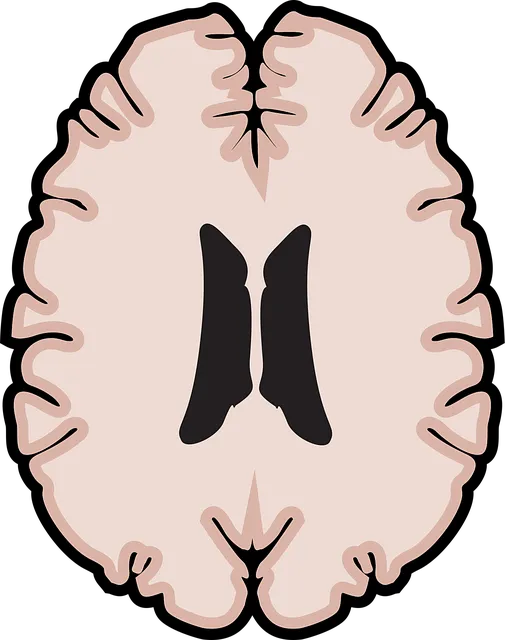Kaiser Permanente Boulder offers extensive mental health support through evidence-based coaching programs that focus on skill development, personalized goal setting, and supportive environments. Their holistic approach includes community outreach, advocacy for Mental Health Policy Analysis, and strategic design addressing burnout prevention for mental health professionals. Evaluations track quantifiable outcomes, qualitative feedback, and behavioral changes, demonstrating the program's effectiveness in promoting well-being and resilience for both clients and coaches.
“Mental wellness coaching is gaining prominence as a holistic approach to healthcare, focusing on individuals’ emotional and psychological well-being. This article explores the development of such programs with a special emphasis on Kaiser Permanente’s services in Boulder, known for its comprehensive mental health support. We’ll delve into key components, evaluation methods, and strategies for designing effective coaching, providing insights into how organizations can enhance their wellness initiatives, especially in light of Kaiser Permanente’s leading role in this field.”
- Understanding Mental Wellness Coaching: A Comprehensive Approach
- Kaiser Permanente's Services in Boulder: An Overview of Mental Health Support
- Designing Effective Coaching Programs: Key Components and Strategies
- Measuring Success: Evaluation Methods for Mental Wellness Coaching
Understanding Mental Wellness Coaching: A Comprehensive Approach

Mental wellness coaching programs are gaining prominence, offering a comprehensive approach to supporting individuals’ mental health. This strategy goes beyond traditional therapy by focusing on empowering clients with skills and tools to manage their well-being. Coaches work collaboratively with folks, helping them set achievable goals, navigate challenges, and foster resilience. By integrating evidence-based techniques with personalized guidance, these programs create a supportive environment conducive to growth and healing.
In the context of organizations like Kaiser Permanente, which offers mental health services in Boulder, wellness coaching can be a valuable addition to existing care models. Effective communication strategies and cultural sensitivity in mental healthcare practice are key to ensuring these programs resonate with diverse populations. Moreover, by advocating for robust Mental Health Policy Analysis, these initiatives can contribute to wider systemic changes, making mental wellness support more accessible and inclusive for all.
Kaiser Permanente's Services in Boulder: An Overview of Mental Health Support

In Boulder, Kaiser Permanente stands out for its comprehensive mental health support services, addressing a wide range of psychological and emotional well-being needs. The organization offers various programs tailored to individuals, families, and even corporate clients, focusing on both preventive measures and crisis intervention. Their approach includes evidence-based treatments, such as cognitive-behavioral therapy (CBT) and mindfulness techniques, aimed at fostering resilience and promoting burnout prevention.
Beyond direct care, Kaiser Permanente Boulder contributes to the broader Mental Health Policy Analysis and Advocacy scene by engaging in community outreach programs that raise awareness about mental health issues. Through these initiatives, they work towards reducing the stigma surrounding mental illness while emphasizing the importance of building resilient individuals and communities. This holistic view on mental wellness aligns with the organization’s commitment to not just treating symptoms but also empowering individuals to navigate life’s challenges effectively.
Designing Effective Coaching Programs: Key Components and Strategies

Effective mental wellness coaching programs development requires a multifaceted approach that aligns with best practices in healthcare and coaching methodologies. At Kaiser Permanente, Boulder, does Kaiser Permanente offer mental health services? Yes, they provide comprehensive mental health support through various channels including coaching programs. The key components of such programs involve establishing clear goals tailored to individual needs, utilizing evidence-based techniques, and fostering a supportive environment that encourages open dialogue and reflection.
Strategic design should incorporate risk assessment for mental health professionals to mitigate potential burnout, a prevalent issue among healthcare providers. Incorporating burnout prevention strategies for healthcare providers can enhance the program’s effectiveness. By integrating these measures, Mental Wellness Coaching Programs Development can evolve into powerful tools that not only address immediate concerns but also foster long-term resilience and well-being in both clients and coaches.
Measuring Success: Evaluation Methods for Mental Wellness Coaching

Evaluating the success of mental wellness coaching programs is crucial for understanding their impact and identifying areas for improvement. At Kaiser Permanente in Boulder, a diverse range of evaluation methods are employed to assess progress and ensure effective support. These strategies go beyond simple satisfaction surveys to capture quantifiable outcomes, qualitative feedback, and behavioral changes.
By integrating metrics related to Inner Strength Development, Mood Management, and Burnout Prevention, the coaching programs can demonstrably show their value. This might include tracking reductions in stress levels, improvements in sleep quality, enhanced emotional regulation skills, or increased productivity and job satisfaction. Such comprehensive evaluation allows for continuous refinement of coaching strategies, ensuring that services remain tailored to the evolving needs of individuals seeking mental wellness support.
Mental wellness coaching programs, such as those offered by organizations like Kaiser Permanente in Boulder, are transforming the way we approach mental health support. By integrating comprehensive strategies and key components, these programs are effective in enhancing overall well-being. Kaiser Permanente’s services in Boulder highlight the importance of accessible, tailored interventions. Measuring success through evaluation methods ensures these programs continue to improve, offering a promising path forward for addressing mental health challenges. For those seeking support, understanding these coaching approaches and the resources available, like those provided by Kaiser Permanente, is a crucial step towards achieving better mental wellness.






